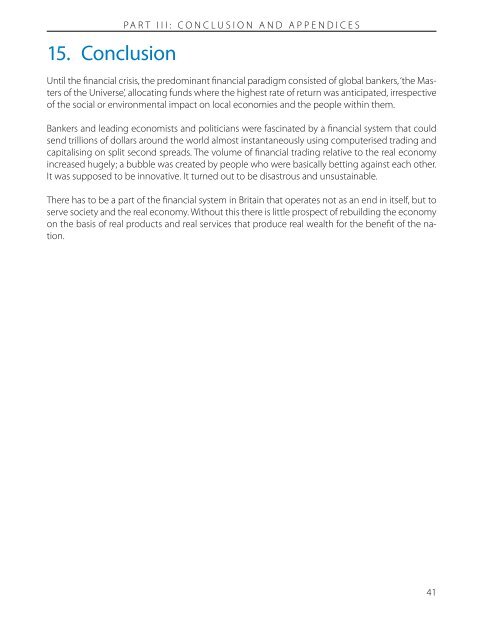The German Sparkassen: A Commentary and Case study - Civitas
The German Sparkassen: A Commentary and Case study - Civitas
The German Sparkassen: A Commentary and Case study - Civitas
Create successful ePaper yourself
Turn your PDF publications into a flip-book with our unique Google optimized e-Paper software.
15. Conclusion<br />
PART III: Conclusion <strong>and</strong> Appendices<br />
Until the financial crisis, the predominant financial paradigm consisted of global bankers, ‘the Masters<br />
of the Universe’, allocating funds where the highest rate of return was anticipated, irrespective<br />
of the social or environmental impact on local economies <strong>and</strong> the people within them.<br />
Bankers <strong>and</strong> leading economists <strong>and</strong> politicians were fascinated by a financial system that could<br />
send trillions of dollars around the world almost instantaneously using computerised trading <strong>and</strong><br />
capitalising on split second spreads. <strong>The</strong> volume of financial trading relative to the real economy<br />
increased hugely; a bubble was created by people who were basically betting against each other.<br />
It was supposed to be innovative. It turned out to be disastrous <strong>and</strong> unsustainable.<br />
<strong>The</strong>re has to be a part of the financial system in Britain that operates not as an end in itself, but to<br />
serve society <strong>and</strong> the real economy. Without this there is little prospect of rebuilding the economy<br />
on the basis of real products <strong>and</strong> real services that produce real wealth for the benefit of the nation.<br />
41




